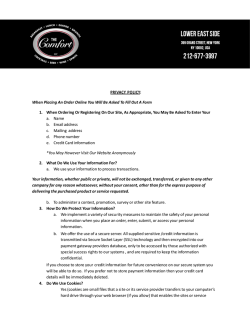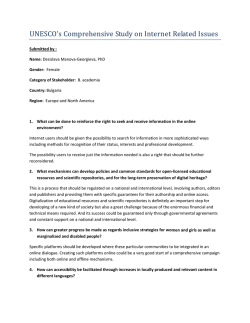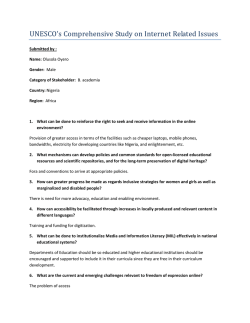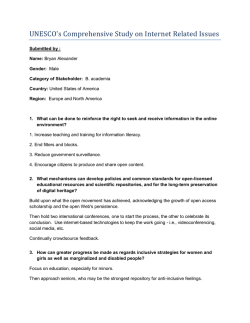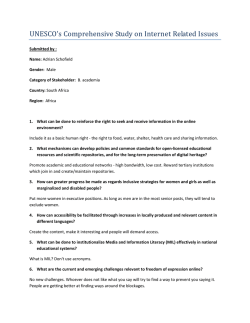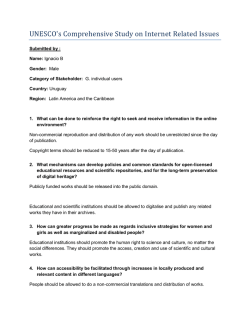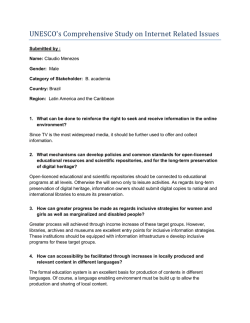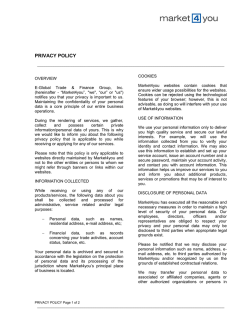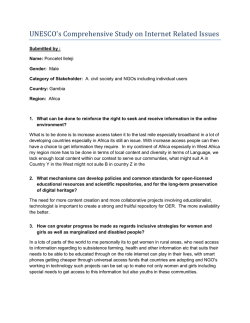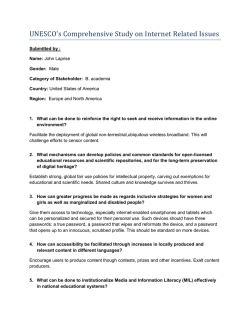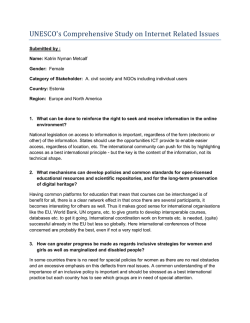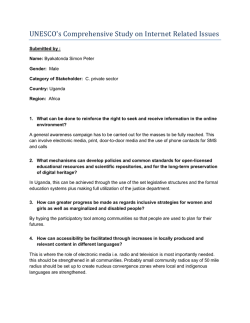
Gaetan Tremblay
UNESCO's Comprehensive Study on Internet Related Issues Submitted by : Name: Gaetan Tremblay Gender: Male Category of Stakeholder: B. academia Country: Canada Region: Europe and North America 1. What can be done to reinforce the right to seek and receive information in the online environment? Reinforcing independent public service media should be a central piece of every strategy to improve the diversity and the quality of information in knowledge societies. For more details, please refer to : Tremblay, Gaëtan, « Rumo à renovação do serviço público midiático », dans Políticas públicas e pluralidade na comunicação e na cultura, sous la direction de Marcelo Kischinhevsky et Marcos Dantas, Editora E-Papers, Rio de Janeiro, Brasil, 2013, p. 55-65. Tremblay, G. “El espacio de los servicios públicos de comunicación en las sociedades del conocimiento”, Conférence inaugurale du IV Congreso Internacional de la Asociación Española de Investigación de la Comunicación, Bilbao, 22-24 janvier 2014. http://teledetodos.es/index.php/blogs/item/977 http://unesco-ci.org/cmscore/sites/default/files/webform/internet-issues/servicio_publico.pdf 2. What mechanisms can develop policies and common standards for open-licensed educational resources and scientific repositories, and for the long-term preservation of digital heritage? 3. How can greater progress be made as regards inclusive strategies for women and girls as well as marginalized and disabled people? 4. How can accessibility be facilitated through increases in locally produced and relevant content in different languages? Making public service media responsible for local production and language diversity. http://unesco-ci.org/cmscore/sites/default/files/webform/internetissues/a_renovacao_do_servico_publico.pdf 5. What can be done to institutionalize Media and Information Literacy (MIL) effectively in national educational systems? 6. What are the current and emerging challenges relevant to freedom of expression online? 7. How can legislation in a diverse range of fields which impacts on the Internet respect freedom of expression in line with international standards? 8. Is there a need for specific protections for freedom of expression for the Internet? 9. To what extent do laws protect digitally interfaced journalism and journalistic sources? 10. What are the optimum ways to deal with online hate speech? How can Media and Information Literacy empower users to understand and exercise freedom of expression on the Internet? 11. What are the optimum systems for independent self-regulation by journalistic actors and intermediaries in cyberspace? 12. What principles should ensure respect for the right to privacy? 13. What is the relationship between privacy, anonymity and encryption? 14. What is the importance of transparency around limitations of privacy? 15. What kinds of arrangements can help to safeguard the exercise of privacy in relation to other rights? 16. How can openness and transparency of data be reconciled with privacy? 17. What may be the impact of issues relating to big data on respect for privacy? 18. How can security of personal data be enhanced? 19. How can Media and Information Literacy be developed to assist individuals to protect their privacy? 20. How can ethical principles based on international human rights advance accessibility, openness, and multi-stakeholder participation on the Internet? 21. What conceptual frameworks or processes of inquiry could serve to analyse, assess, and thereby inform the choices that confront stakeholders in the new social uses and applications of information and knowledge? 22. How does ethical consideration relate to gender dimensions of the Internet? 23. How can ethics, - i.e. the simultaneous affirmation of human rights, peace, equity, and justice - inform law and regulation about the Internet? 24. What international, regional and national frameworks, normative guidelines and accountability mechanisms exist of relevance to one or more fields of the study? 25. How do cross-jurisdictional issues operate with regard to freedom of expression and privacy? 26. What are the intersections between the fields of study: for example, between access and freedom of expression; ethics and privacy; privacy and freedom of expression; and between all four elements? 27. What pertinent information materials exist that cut across or which are relevant to the four fields of the study? 28. What might be the options for role of UNESCO within the wider UN system in regard to the distinct issues of online Access to information and knowledge, Freedom of Expression, Privacy and Ethical dimensions of the information society? 29. What might be options for the role of UNESCO in relation to stakeholders outside the UN system? 30. For each study field, what specific options might UNESCO Member States consider?
© Copyright 2026
